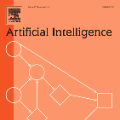This paper explores the potential of artificial intelligence (AI) in higher education, specifically its capacity to replace or assist human teachers. By reviewing relevant literature and analysing survey data from students and teachers, the study provides a comprehensive perspective on the future role of educators in the face of advancing AI technologies. Findings suggest that although some believe AI may eventually replace teachers, the majority of participants argue that human teachers possess unique qualities, such as critical thinking, creativity, and emotions, which make them irreplaceable. The study also emphasizes the importance of social-emotional competencies developed through human interactions, which AI technologies cannot currently replicate. The research proposes that teachers can effectively integrate AI to enhance teaching and learning without viewing it as a replacement. To do so, teachers need to understand how AI can work well with teachers and students while avoiding potential pitfalls, develop AI literacy, and address practical issues such as data protection, ethics, and privacy. The study reveals that students value and respect human teachers, even as AI becomes more prevalent in education. The study also introduces a roadmap for students, teachers, and universities. This roadmap serves as a valuable guide for refining teaching skills, fostering personal connections, and designing curriculums that effectively balance the strengths of human educators with AI technologies. The future of education lies in the synergy between human teachers and AI. By understanding and refining their unique qualities, teachers, students, and universities can effectively navigate the integration of AI, ensuring a well-rounded and impactful learning experience.
翻译:暂无翻译




